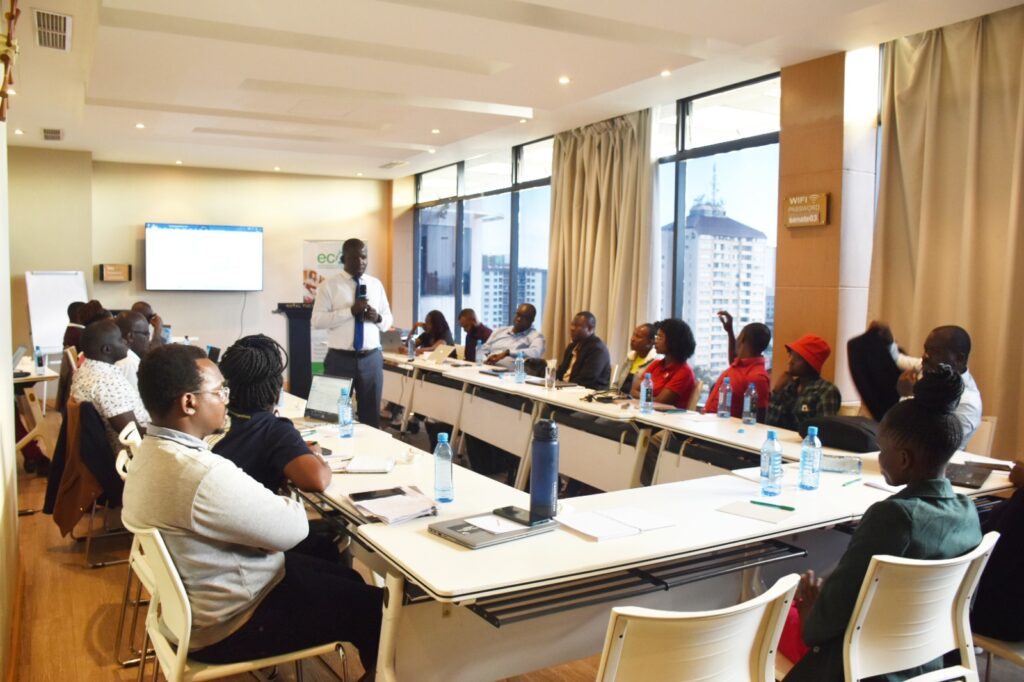
INTERNATIONAL TRAINING ON FOREST AND WATER NEXUS- INTRODUCTION
COURSE BACKGROUND
Forests and water are inextricably linked, forming a critical “nexus” essential for life on Earth. Forests regulate water cycles, maintain water quality, and supply freshwater for billions of people. However, global challenges like climate change, deforestation, and increasing water scarcity are profoundly impacting this delicate balance, threatening ecosystems and human well-being.
ECAS Institute recognizes the fundamental interdependence of forests and water and the urgent need for integrated management approaches. We aim to raise awareness and build foundational knowledge on this crucial relationship. This course will highlight how human decisions impact the forest-water nexus and why holistic strategies are vital for sustainability.
This introductory training is designed to provide participants with a comprehensive understanding of the complex interactions between forests and water. It will explore the ecological, social, and economic dimensions of this nexus, emphasizing both challenges and opportunities for sustainable management. By grasping these connections, participants will be better equipped to contribute to informed decision-making and integrated resource governance.
COURSE OBJECTIVES OF THE TRAINING
Upon completion of this training, participants will be able to:
- Understand the fundamental hydrological and ecological interactions between forests and water resources.
- Recognize the critical importance of forests for water quality, quantity, and overall hydrological regulation.
- Identify key challenges and pressures at the forest-water nexus, including impacts of climate change and land-use change.
- Explore integrated management approaches and nature-based solutions for sustainable forest and water governance.
- Appreciate the socio-economic implications of the forest-water nexus for communities and livelihoods.
WHAT YOU WILL LEARN
This introductory course provides a robust overview of the vital connections between forests and water. You will learn:
- The fundamental ecological and hydrological processes that link forests and water.
- How forests influence water quality, quantity, and the timing of water flows.
- The major challenges facing the forest-water nexus, such as deforestation, climate change, and water scarcity.
- Principles and examples of integrated forest and water resource management.
- The socio-economic importance of the forest-water nexus for livelihoods, food security, and human well-being.
DURATION AND PROGRAM
This is a structured training course, designed to provide foundational knowledge on the forest and water nexus. The program will combine theoretical concepts with relevant case studies and interactive discussions to enhance understanding. The detailed program schedule, including specific session timings and learning activities, will be communicated prior to the training commencement.
TARGET PARTICIPANTS
This course is designed for a diverse audience interested in environmental management, resource governance, and sustainable development. Ideal participants include:
- Environmental professionals and practitioners working in forestry, water resources, and conservation.
- Policymakers and planners from government agencies responsible for land, water, and climate.
- Community leaders and representatives from forest-dependent or water-stressed regions.
- Students and academics in environmental science, forestry, hydrology, and related fields.
- NGO staff involved in conservation, climate change, and rural development.
TRAINING MODULES
The course is structured into several key modules, building a comprehensive understanding of the intricate relationship between forests and water:
| No | Module | Details | |
| 1. | Fundamentals of the Forest-Water Nexus |
This module introduces the basic scientific principles governing the relationship between forests and water, outlining the critical functions forests perform within the hydrological cycle.
|
|
| 2. | Impacts of Forest Change on Water Resources |
This module explores how human activities and environmental changes affecting forests, such as deforestation, degradation, and climate change, directly impact water resources.
|
|
| 3. | Integrated Forest and Water Management Approaches |
This module delves into holistic strategies and nature-based solutions that promote the sustainable and integrated management of both forest and water resources.
|
|
| 4. | Socio-Economic Dimensions and Governance of the Nexus |
This module examines the human aspects of the forest-water nexus, including impacts on livelihoods, water security, potential conflicts, and the importance of community involvement.
|
|
|
5.
|
Tools and Technologies for Assessment and Monitoring |
This module introduces participants to various tools and technologies used to assess, monitor, and manage the forest-water nexus effectively.
|
|
TRAINING STYLE
The modules will be taught through PowerPoint presentations, and lectures and will include a case study/field visit, breakout sessions, case studies and other interactive discussion components.
The course will also include a few guest speakers, both in person and via Zoom and other online learning platforms for overseas speakers. This provides useful real-world insights alongside the more theoretical aspects of the course.
The conference faculty shall consist of experienced decision makers, as well as practitioners and representatives from established educational and research institutions active around climate change, engineering and international development. Throughout the course, theoretical presentation of concepts will be moderated and more group discussions and plenary engagements will be optimized. PowerPoint presentations will be made by facilitators and resource persons, to highlight key concepts before embarking on group work.
GENERAL NOTES
- Training manuals and additional reference materials are provided to the participants.
- Upon successful completion of this course, participants will be issued with a certificate.
- We can also do this as a tailor-made course to meet organization-wide needs. Contact us to find out more: info@ecasiafrica.org.
- Payment should be sent to our bank account before the start of training and proof of payment sent to: info@ecasiafrica.org.
ABOUT ECAS INSTITUTE
The ECAS Institute designs and delivers independent and targeted training, research, and consulting services. Our work focusses on climate change and resilience building, carbon markets, renewable energy, nature-based solution, biodiversity conservation, agriculture and food systems, We are located in Nairobi Kenya and work across the African region. We have implemented training and research assignments in Kenya, Tanzania, Uganda, South Sudan, Somalia, Malawi, Rwanda, Congo, and South Africa. Globally, we have supported our partners from the UK, Denmark, Italy, Sweden, Germany, and USA.

